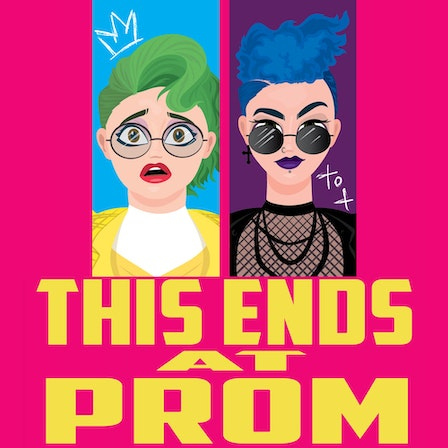Podcast awards, insane reality shows, and the truth about Pig-Pen
Plus: What Home Alone can teach us about cinema, torturous Pokémon challenges, and owl possession. 🦉
Welcome to Follow Friday, which I’m excited to say is very very close to crossing 500 subscribers. Thank you to everyone who has signed up in the past couple months, and especially to the folks who have recommended this newsletter to their friends and followers. I have a lot of fun writing this every week, and I’m glad you’re here.
The single best thing I saw online this week: One of my YouTube favs Patrick Willems dropped an unusual video this week: A 90-minute introduction to film studies, originally written as a class for the streaming service Nebula. It’s fantastic. Patrick gives clear, succinct explanations of a lot of terms that get thrown around by people analyzing cinema, with examples from a decidedly not-pretentious, not-too-artsy film: 1990’s Home Alone. And in the process, he kinda convinced me that Home Alone is a much better movie than I realized??? Lots to like here.
The best podcasts I’ve heard this week
Via the Podcasting Community Discord, I learned this week about This Ends at Prom, a fantastic film discussion podcast hosted by a married couple, BJ Colangelo and Harmony Colangelo. Every episode is about a different movie for or about teenagers, especially teen girls, and Harmony — who is trans — is watching many of them for the first time. I started with the episode about Scott Pilgrim vs. the World, but I’ve been plowing through the archives and my favorite so far is the episode about an even better movie, Election.
Kerning Cultures is in the middle of a harrowing new miniseries called “Aizen,” about a fair-skinned Afghani teenager who gets thrown in prison for a crime he did not commit; after three months of hell, he sets out to cross the Middle East and Europe illegally, with the goal of getting all the way to France. It’s brilliantly told by Al Shaibani, and the impact is even greater when you realize just how many migrants must have stories just as bad as Aizen’s, or worse.
Especially if you’re a fan of Hulu’s The Great (and if you’re not, you should be), you should check out The Atlas Obscura Podcast’s episode about “Empress Anna’s Ice Palace.” Sarah Durn takes the notorious story of a forced marriage orchestrated by Empress Anna Ioannovna in a custom-built castle made entirely out of ice, and turns it on its head: Was it really a flighty young woman’s whim? Or was there something more happening there?
The Onion: Woman Puts On True Crime Podcast To Entertain Herself While Cleaning Up Husband’s Entrails
Hurming and murming about podcast awards
As previously discussed, I’m a believer in the power of awards shows to incentivize better art. But I’m feeling kind of conflicted about the state of podcasting awards.
The Ambies are an annual awards ceremony that will be emceed by comedian Larry Wilmore at an upcoming industry conference, Podcast Movement Evolutions. The nominations for this year’s awards were announced a couple weeks ago, and I’m intrigued enough by some of the shows that I plan to check them out!
But I’m also put off by just how many of the 150+ nominees I’ve literally never heard of. It’d be one thing if I were a casual listener, but I work in this industry, subscribe to more than 100 podcasts, and regularly read at least a dozen podcasting newsletters.
This is not a criticism of the Ambies, per se, but of any attempt to fit podcasts into a traditional awards season-shaped box. Three main reasons: 1) Three are a lot of fucking podcasts; 2) Unlike other forms of media, which get big timed releases (e.g. movies, books) or are available in regular seasons (e.g. TV), podcasts’ power snowballs with their longevity; and 3) They also often thrive inside of niches, so applying broad genres like “comedy” and “fiction” can be ungainly.
I have no doubt that many of the Ambies’ nominees are very good shows, but I suspect I’m not alone here, and that my fellow podcast fans are also unfamiliar with a good lot of them.
There’s also the fact that this show — like a lot of industry awards — only considers paid submissions rather than soliciting public nominations, which is probably why so many nominees are from the likes of Audible, SiriusXM, etc. But this section has already gone on too long, so that’s a gripe for another day!
help i’m addicted to this pokémon challenge
If you have never cared about Pokémon at all, keep scrolling. We’re about to get real nerdy.
Via GamesDoneQuick, I learned this week about a specific way of playing the Pokémon games that kind of blew my mind. I’d heard of speedrunners who try to beat the games as quickly as possible, and “Nuzlocke” players who impose restrictive rules for an additional challenge. But this week was my introduction to “IronMON,” an even more difficult version of Nuzlocke that is designed to be fun to watch on Twitch and torturous for the person playing.
All the Pokémon, items, and moves in the game are randomized, including the three ‘mons you can choose from at the beginning. You can only have ONE Pokémon in your party at a time. Oh, and all your rivals’ Pokémon are higher levels than they would be normally. Many IronMON runs end during the very first battle in Prof. Oak’s lab, and reaching the first gym is a major achievement.
Even if I were a Twitch streamer, I would never play the games like this. It sounds awful! But I’m very grateful for all the people who do subject themselves to it, because it’s surprisingly addictive.
How reality shows get greenlit
Yeah, this seems about right.
The best thing I’ve read this week
Most of the time, I reserve something a little headier or heavier for this spot in the newsletter, but the honest answer to the best thing I’ve read this week is this slightly ridiculous, yet engrossing essay about the Peanuts character Pig-Pen. In the “filth issue” of literature magazine Astra, Elif Batuman recounts how reading all the Pig-Pen strips in order unlocks the character in the way that the weekly strips did not. And she goes deep on what it all means:
In a way, Pig-Pen seems to be conjured by Patty herself. Patty, with her grid-patterned dress and matching bow, is the most concerned with propriety, appearances, and conventions. She is a kind of emanation of the fifties. (Once sandal-wearing Peppermint Patty, who isn’t overconcerned with neatness, appears in 1966, the other Patty is no longer mentioned by name and soon essentially disappears from the strip.) Pig-Pen, then, may be Patty’s Jungian shadow, the dark side of the fifties suburban ideal. In 1956, Charlie Brown describes Pig-Pen as “the only person I know who can raise a cloud of dust on a clean sidewalk.” It’s a subtly disorienting moment.
Palate cleanser: Someone in the office is possessed by an owl
RIP to the person on the other side of the camera.
… And the rest
A history of The Apple Lisa, a groundbreaking flop
That time the Soviets and Nazis faced off in front of the Eiffel Tower
Semi-related: McMansion Hell dissects “dictator chic”
An interview with the world’s crankiest cat
The lede to this story about TikTok cracked me up
An excellent tweet about Star Wars
The difference between alpacas and llamas
And CatGPT





